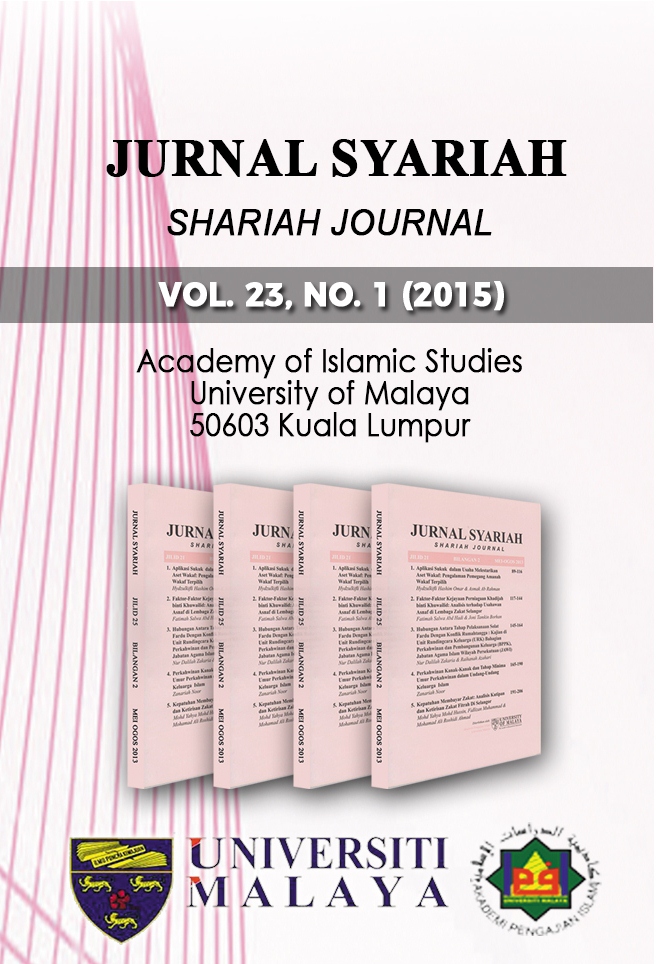PERMOHONAN KELUAR ISLAM: KAJIAN KES DI MAHKAMAH TINGGI SYARIAH NEGERI SABAH
Application to Leave Islam: A Case Study in Sabah Shariah High Court
DOI:
https://doi.org/10.22452/js.vol23no1.3Keywords:
application to leave Islam, apostasy, Shariah Court of Sabah, Sabah Native Court, Muslim and non-Muslim marriageAbstract
In 2010, the Shariah Courts in Sabah have reportedly received 238 applications to leave Islam, the largest number in Malaysia. Out of this number, 67 applications have been approved. This has given rise to the question as to why these applications were done and how they were dealt with by the Shariah Courts in Sabah. The main objective of this article is to study how the Shariah Courts in Sabah handled those cases, by examining case files at two High Courts in Kota Kinabalu and Keningau. To achieve this objective, semi-structured interviews and observations were also conducted. Throughout the analysis, it is found that the majority of cases were identified as cases to certify the applicants’ religious status rather than application to convert out of Islam. This study also found that applications to convert out of Islam were also filed by non-Muslims and also by those whose religious status have not been determined due to mixed marriages between Muslim and non-Muslim. Apart from that, there were also cases filed by those who professed Islam in mass ceremonies in the 1970s until 1980s. Although this finding shows that the issue regarding apostasy in Sabah is not rampant, the Shariah Courts nevertheless, are required to adjudicate the cases. In the final part of this article, the writers give some recommendations regarding management approach and statutory amendment in order to improve the management of such cases in the Shariah Courts of Sabah.
Downloads
Downloads
Published
How to Cite
Issue
Section
License

This work is licensed under a Creative Commons Attribution-NonCommercial 4.0 International License.
COPYRIGHT: All rights reserved. Not allowed to be reproduced any part of articles and contents of this journal in any form or by any way, whether electronic, mechanical, photocopying, recording or otherwise without permission in writing from the Chief Editor, Jurnal Syariah.











